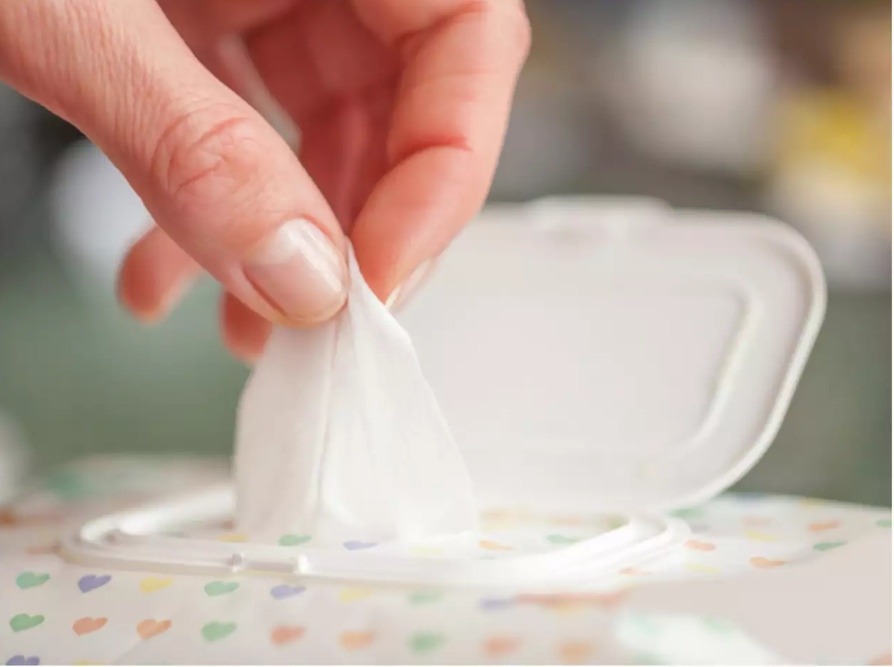Flushable wipes have become increasingly popular in recent years as a convenient alternative to traditional toilet paper. These wipes are marketed as being safe for the environment and sewer systems, but there is a growing concern that they may cause irritation or other health problems. In this article, we will explore the question “Can flushable wipes cause irritation?” in depth.
>>>> Read more: Antibacterial Wet Wipes Manufacturer DHTI in US
1. What Are Flushable Wipes?
Flushable wipes are pre-moistened cloths that are used for cleaning after using the toilet. They are typically made from a blend of materials including wood pulp, polyester, and polypropylene. Some brands also contain additional ingredients such as fragrances or moisturizers. Flushable wipes are designed to be disposed of by flushing them down the toilet.
>>>> Read more: The Entire Wet Wipes Production
2. How Do Flushable Wipes Work?
Flushable wipes work by providing a more thorough cleaning experience than traditional toilet paper. The moist surface of the wipe helps to remove bacteria and other debris from the skin. This can be especially beneficial for individuals with sensitive skin or those who suffer from certain medical conditions such as hemorrhoids or anal fissures.
>>>> Read more: #1 Private Label Wet Wipes Manufacturer USA Prestige 2023
3. Can Flushable Wipes Cause Irritation?
The short answer is yes, flushable wipes can cause irritation for some individuals. This is because most flushable wipes are not truly biodegradable, meaning that they do not break down quickly or easily in water. Instead, they can get stuck in pipes or sewage systems, leading to blockages or backups. This can result in raw sewage overflowing into homes or public areas, causing serious health risks.
Additionally, flushable wipes may contain harsh chemicals or fragrances that can irritate sensitive skin. Even if you do not experience immediate symptoms after using flushable wipes, repeated use over time can lead to chronic irritation or inflammation.
4. Examples of Flushable Wipe Irritation
There have been numerous reports of individuals experiencing irritation or other health problems after using flushable wipes. Some common symptoms include:
- Redness or swelling around the anus or genitals
- Itching or burning sensations
- Pain or discomfort during bowel movements
- Increased likelihood of developing urinary tract infections (UTIs)
5. Comparing Flushable Wipes to Traditional Toilet Paper
When it comes to cleanliness and convenience, flushable wipes may seem like an attractive alternative to traditional toilet paper. However, it is important to weigh the potential risks and benefits before making a decision. Here are some key differences to consider:
5.1 Pros of Flushable Wipes
- More thorough cleaning experience
- Ideal for individuals with sensitive skin or medical conditions
- Can be more convenient than traditional toilet paper
5.2 Cons of Flushable Wipes
- May contain harsh chemicals or fragrances that can cause irritation
- Not truly biodegradable, leading to potential health hazards
- Can be more expensive than traditional toilet paper
6. How to Use Flushable Wipes Safely
If you do choose to use flushable wipes, there are some steps you can take to minimize the risk of irritation or other health problems. Here are some tips:
- Choose a brand that is labeled as “flushable” and has been tested for safety
- Use only one wipe per bathroom break to avoid overuse and buildup in pipes
- Avoid flushing wipes that are labeled as “non-flushable” or “biodegradable”
- If you experience any symptoms of irritation or infection, discontinue use immediately and seek medical attention.
FAQs
Q1. Are all flushable wipes safe to use?
A: No, not all flushable wipes are safe to use. Some brands may contain harsh chemicals or fragrances that can cause irritation or other health problems. To ensure your safety, choose a brand that is labeled as “flushable” and has been tested for safety.
Q2. Can flushable wipes cause UTIs?
A: Yes, there is some evidence to suggest that repeated use of flushable wipes can increase the likelihood of developing urinary tract infections (UTIs). This is because the wipes may introduce harmful bacteria into the urethra or bladder.
Q3. Are flushable wipes better for the environment than traditional toilet paper?
A: No, flushable wipes are not necessarily better for the environment than traditional toilet paper. While they may be marketed as being biodegradable, most wipes do not break down quickly or easily in water. This can lead to blockages or backups in sewage systems, causing serious health and environmental hazards.
Q4. Can flushable wipes be recycled?
A: No, flushable wipes cannot be recycled. They are typically made from a blend of materials including wood pulp, polyester, and polypropylene, which are not recyclable.
Q5. Can flushing flushable wipes damage my plumbing?
A: Yes, flushing flushable wipes can potentially damage your plumbing by causing blockages or backups. To minimize this risk, choose a brand that is labeled as “flushable” and has been tested for safety. Additionally, use only one wipe per bathroom break and avoid flushing wipes that are labeled as “non-flushable” or “biodegradable.”
In conclusion, the question of whether flushable wipes can cause irritation is a complex issue. While these wipes can provide a more thorough cleaning experience than traditional toilet paper, they also come with potential risks such as irritation, infection, and environmental hazards. If you do choose to use flushable wipes, it is important to take steps to minimize these risks, such as choosing a safe brand, using only one wipe per bathroom break, and seeking medical attention if you experience any symptoms of irritation or infection.
Ultimately, the decision of whether to use flushable wipes or not is a personal one that should be based on your individual needs and preferences. By weighing the potential risks and benefits, you can make an informed decision that keeps you safe and healthy in the long run.
Read more articles for anmolideas



